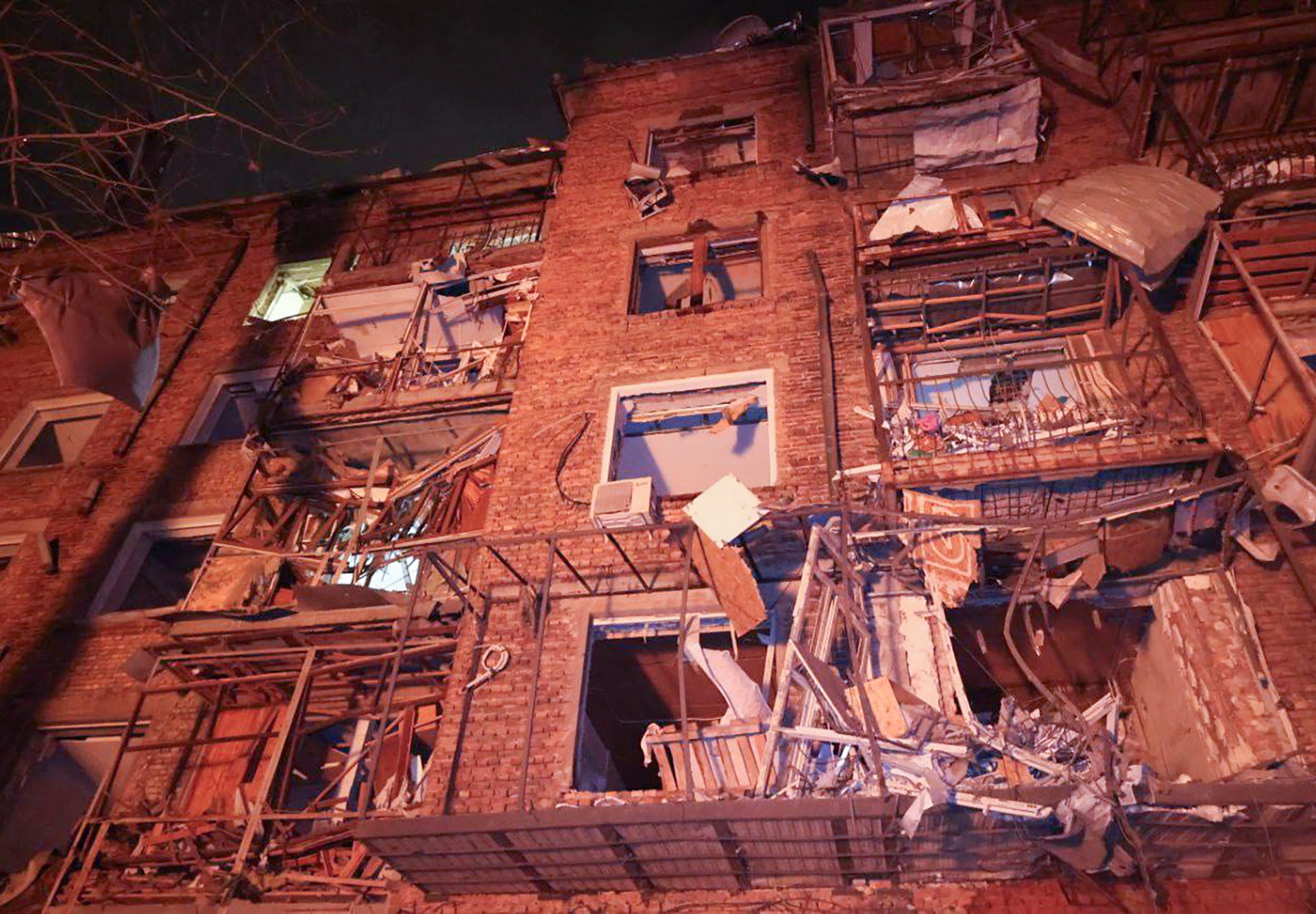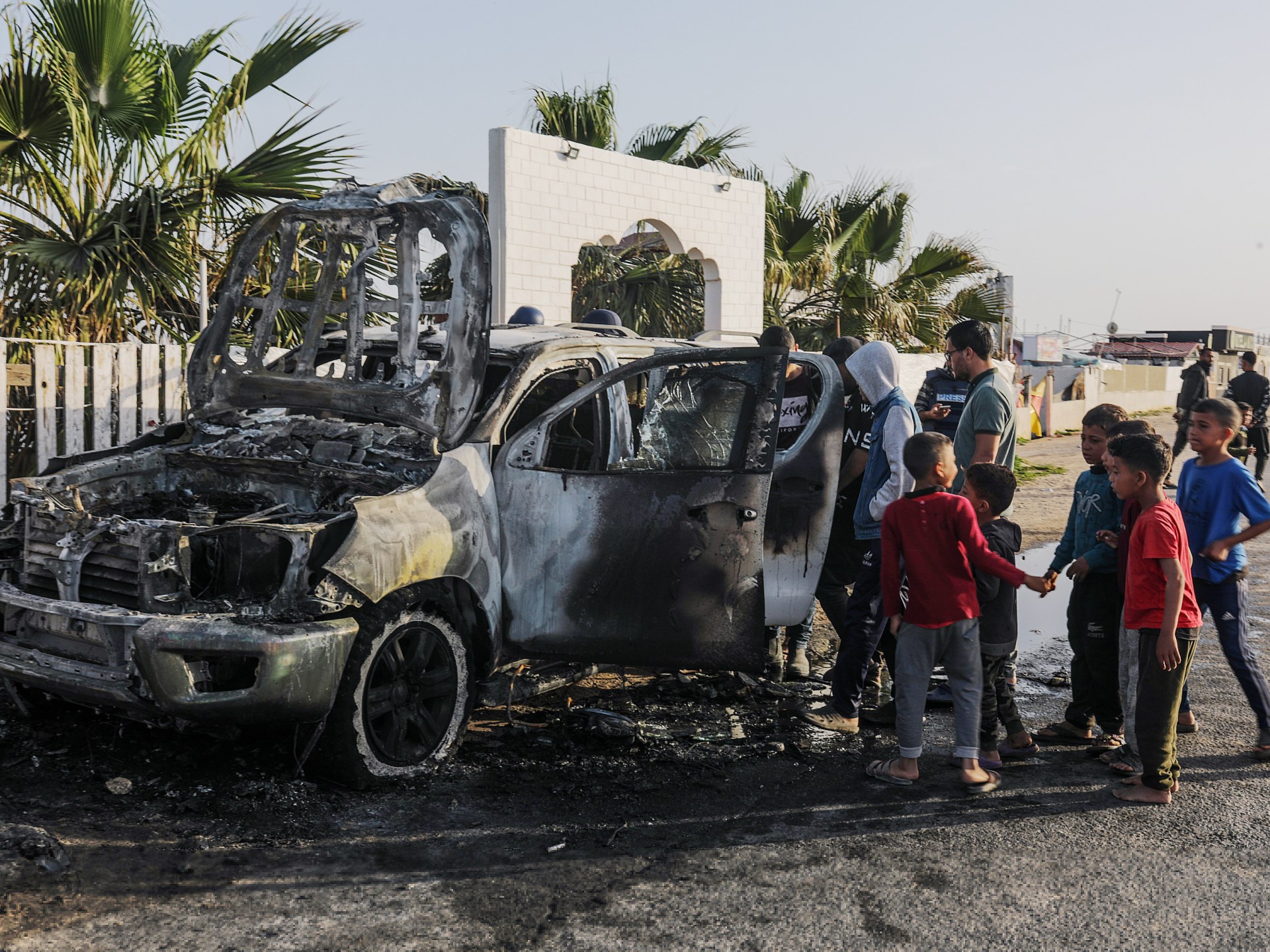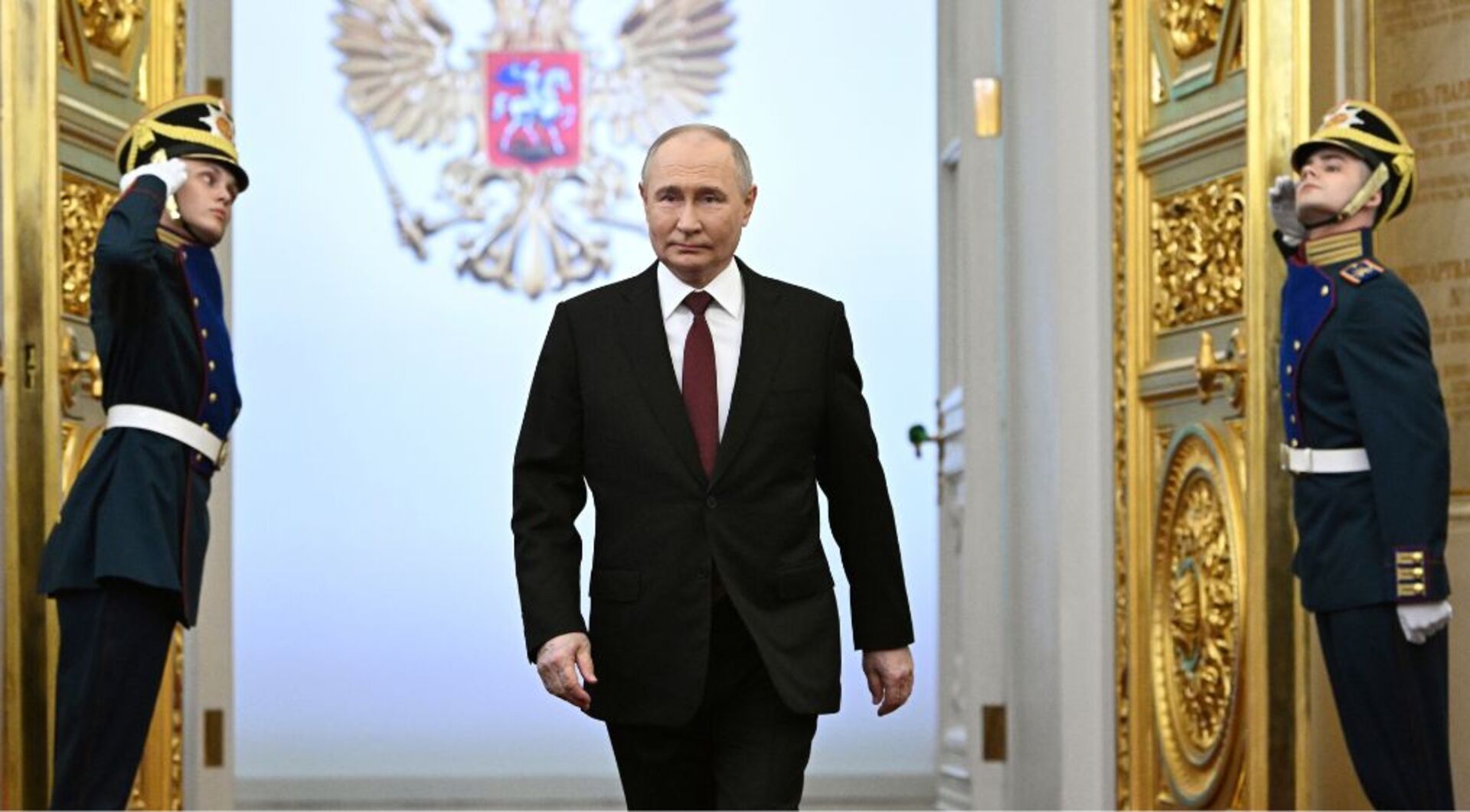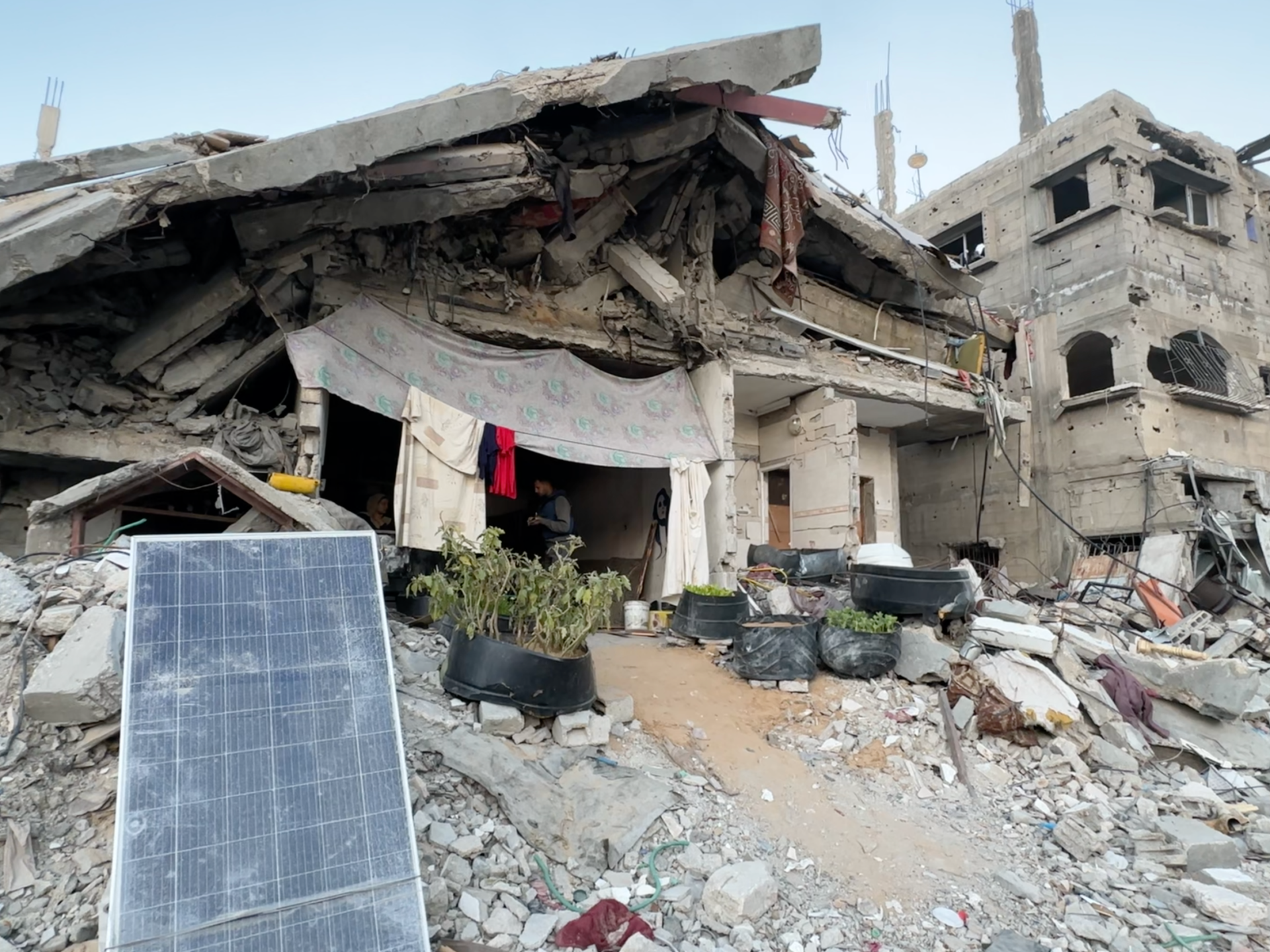Russia targets Ukraine ‘military’ sites in retaliation for Belgorod attack | Russia-Ukraine war News
Russia says it has targeted Ukrainian military sites in the capital Kyiv and Kharkiv in a new wave of drone and missile attacks in days, in retaliation for a deadly attack a day earlier on the city of Belgorod.
The Russian defence ministry said on Sunday it had struck “decision-making centres and military installations” in the northeastern city of Kharkhiv, after Kyiv said that residential buildings, a hotel and cafes had been hit.
In the first wave of overnight attacks, at least six missiles hit Kharkiv, Ukraine’s National Police said on Sunday, injuring at least 22 people and hitting 12 apartment buildings, 13 residential houses and a kindergarten.
Most drones were aimed at Ukraine’s first line of defence as well as at civilian, military and infrastructure in the Kharkiv, Kherson, Mykolaiv and Zaporizhia regions, the Ukrainian Air Force said, adding that it destroyed 21 out of 49 attack drones.
Earlier, Ukrainian officials said that among those injured in Kharkiv were two boys aged 14 and 16 and a security adviser for a team of German journalists.
Closer to midnight, as part of a wider bombardment of Ukraine that also targeted Kyiv, several waves of Russian drones hit residential buildings in Kharkiv’s centre, spouting fires, the mayor of Kharkiv, Ukraine’s second-largest city, said.
“On the eve of the New Year, the Russians want to intimidate our city, but we are not scared – we are unbreakable and invincible!” Mayor Ihor Terekhov said.
‘Terrorist attack’
Russia accused Ukraine of carrying out a “terrorist attack” on Saturday on civilians in the city of Belgorod, including using controversial cluster munitions in strikes that killed at least 22 people and wounded dozens more.
The governor of Belgorod region, Vyacheslav Gladkov, called residents of the city of Belgorod to hide in shelters on Sunday as a missile threat alert was issued in the city, according to a post on his Telegram account.
Earlier, Moscow said the attack – which followed waves of rocket and drone strikes by Russian forces on Ukrainian cities – would “not go unpunished”.
In an emergency meeting at the UN Security Council, demanded by Russia, envoy Vasily Nebenzya claimed Kyiv targeted a sports centre, an ice rink and a university.
“[It was a] deliberate, indiscriminate attack against a civilian target,” Nebenzya said on Saturday.
At least 40 people were killed on Friday in one of Russia’s biggest attacks on Ukraine since its invasion nearly two years ago.
Nebenzya defended the attacks saying Moscow had targeted only military infrastructure and that Ukraine’s air defence systems were responsible for civilian casualties.
Poland, a member of the NATO military alliance, on Friday said a Russian missile briefly passed through its airspace before leaving, prompting concern from the country that borders Ukraine.

Western backing to continue?
Fighting between Russia and Ukraine has intensified over the past week amid speculations that the war has reached a stalemate.
US President Joe Biden said on Saturday he would speak to Ukrainian President Volodymyr Zelenskyy after the latest attacks.
Biden said on Friday that the assault demonstrates that Russian President Vladimir Putin’s goals in Ukraine “remain unchanged” nearly two years after Russia first launched its invasion.
“He seeks to obliterate Ukraine and subjugate its people. He must be stopped,” Biden said in a statement.
While support for Ukraine remains robust among Western countries, further military assistance has met growing pushback by conservative political forces in the US and Europe.
The United States, Ukraine’s biggest single-country donor, has sent more than $40bn in aid since Russia’s invasion in February 2022.
But right-wing congressional Republicans have expressed increasing scepticism towards approving more funds for Ukraine.
The US Senate will vote on an aid package for Ukraine in 2024. But Congress could continue to hold up the money.
The impasse over US aid to Kyiv is mirrored in the European Union, where Hungary is blocking a 50 billion euro ($55bn) aid package. The bloc is due to revisit the issue in January.
The difficulties in securing the funds in Washington and Brussels have raised concerns in Kyiv that Western backers are experiencing “fatigue” with the drawn-out battle, as fighting on the front line becomes bogged down.
Zelenskyy has noted that Kyiv’s “foreign policy will be active” with many international activities in January.
“We make every effort to strengthen Ukraine and ensure that everyone is confident about the coming year, about military aid, macro-financial assistance, and political support,” he said.
Check out our Latest News and Follow us at Facebook
Original Source







